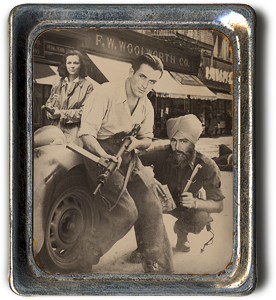By Norvell Page (writing as Grant Stockbridge). Second book of “The Black Police Trilogy,” originally published in The Spider #61 (October, 1938). See first book here.
 |
| Original magazine cover |
It is now three months since tyranny descended on New York. Richard Wentworth has continued leading a resistance from his camp hidden in caves in the Catskill Mountains. But a mysterious new plague like leprosy has begun striking those opposed to the criminal regime, sapping their will. Wentworth makes a desperate and dangerous dash for Washington, DC, where he finds the President in sympathy with the people of New York but powerless to intervene as long as the elected state government adheres to the forms of law. He is, however, able to call a special election. Wentworth works tirelessly and at great personal risk to try to get the people out to vote. Ultimately this leads to his capture, show trial, and condemnation to a horrific death - and the election is stolen. Wentworth's execution is interdicted at the last minute by deposed NYPD Commissioner Stanley Kirkpatrick leading a rescue – in the guise of The Spider! Together, Wentworth and Kirkpatrick lead a raid back into New York City to capture a supply of antitoxin for the plague which the Black Police have been spreading among their foes, and to take back police headquarters, and ultimately to lead a mass uprising by the people marching on City Hall to the tune of The Battle Hymn of the Republic. But the Master eludes Wentworth's grasp once again ....
One of the running conceits of the Spider series is that Stanley Kirkpatrick, while a superb police commissioner in so many ways and a tacit ally of Richard Wentworth, is a man of absolute integrity sworn to bring the Spider to justice and certain execution. Time after time he must overlook the obvious connection between Wentworth and the outlaw vigilante. Always some plot twist allows Kirkpatrick to seize onto some shred of doubt. At times, this makes him seem somewhat obtuse. Really, there is no doubt that Kirkpatrick knows – but as is stated time and again, only with irrefutable proof will he admit it, even to himself. Should that proof come, however, it is clear that he will unflinchingly do his duty.
In these stories especially it seems that the game is up. All but openly Wentworth comes out as the Spider in this time of need, becoming a symbol around whom the people of New York, even Kirkpatrick, can rally against the Black Police. But always Wentworth maintains the facade that he is acting merely as an agent of the Spider. A prime example comes early in this middle book of the trilogy, pp. 191-4. Wentworth leads a daring raid to rescue a captured Kirkpatrick. In the commissioner's presence, to the commissioner's fellow captives he identifies himself - “The Spider has come to rescue you!” (p. 191). Having penetrated their prison in normal garb, to lead the breakout he adopts the guise of the Spider - “Wentworth turned to find men staring at him with wide, half-frightened eyes. He sent the flat, mocking laughter of the Spider at them, abruptly switched to his normal tone of voice. 'You'd almost think I was the Spider, wouldn't you,' he laughed” (p. 192). … “'Charge!' Wentworth shouted. 'Death to the Black Police! The Spider leads you!'” (p. 193). In the first story he had set this up, proclaiming that others too would be given the Spider ring to leave the tell-tale crimson seal on dead criminals.
I discovered a wonderful website designed to accompany the publication of this book, taking the form of a memorial “to the brave men and women who gave their lives during the New York rebellion of 1938” - Fight the Empire State. Several pages proceed to tell the story of this “neglected chapter in U.S. History” in mock documentary form, including a series of period photographs. One of those, although identified only tentatively as such, obviously purports to show Richard Wentworth along with Nita van Sloane and the faithful Ram Singh.


No comments:
Post a Comment